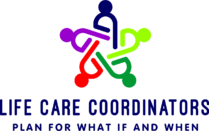The aging process is a unique and individualized journey, often accompanied by a variety of healthcare needs and challenges. As we strive to provide the best quality of life for our elderly population, geriatric care coordination services have emerged as a crucial component in ensuring comprehensive and tailored care. In this blog post, we’ll explore the significance of geriatric care coordination and how it can positively impact the well-being of aging adults and their families.
Geriatric care coordination involves a holistic approach to addressing the complex needs of aging individuals. It goes beyond traditional healthcare by considering the physical, emotional, and social aspects of a senior’s life. Here’s a closer look at key elements of geriatric care coordination services:
- Comprehensive Assessment:
- Geriatric care coordinators conduct thorough assessments to understand the unique needs and challenges faced by seniors.
- This assessment includes an evaluation of physical health, mental well-being, social support systems, and living conditions.
- Personalized Care Plans:
- Based on the assessment, care coordinators develop personalized care plans that address the specific needs of each individual.
- These plans may include medical care, medication management, emotional support, and assistance with daily activities.
- Resource Navigation:
- Geriatric care coordinators have a wealth of knowledge about available community resources, healthcare providers, and support services.
- They guide seniors and their families through the often-complex healthcare landscape, ensuring access to the right resources.
- Advocacy:
- Care coordinators act as advocates for their clients, ensuring that they receive respectful and person-centered care from healthcare providers and facilities.
- Advocacy may involve communicating with medical professionals, coordinating appointments, and addressing any concerns that arise.
- Family Involvement:
- Geriatric care coordination emphasizes open communication with family members, keeping them informed and involved in the care process.
- This collaborative approach helps families make informed decisions about their loved ones’ care.
Geriatric care coordination services play a vital role in optimizing the aging experience for seniors and their families. By adopting a holistic and personalized approach, these services contribute to improved health, increased independence, and enhanced overall well-being. As we continue to recognize the importance of comprehensive care for our aging population, geriatric care coordination stands out as a beacon of support, guiding individuals through the journey of aging with dignity and comfort.

